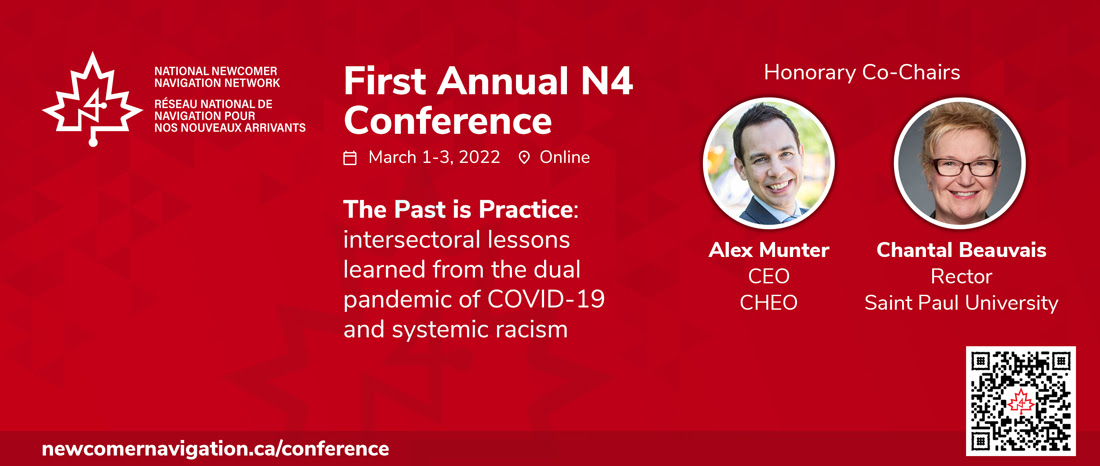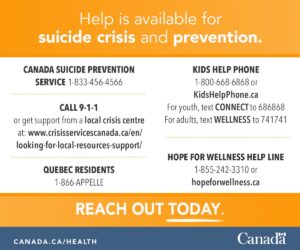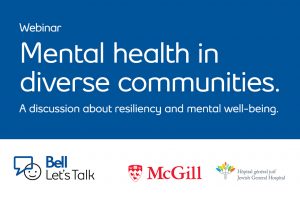MEDIA RELEASE – Tuesday 12 April 2022
Royal College of Psychiatrists launches new resource to support the mental health of asylum seekers and refugees
The Royal College of Psychiatrists is launching information aimed at health and social care professionals in the UK supporting asylum seekers and refugees with their mental health. Endorsed by the Academy of Medical Royal Colleges, it provides information, guidance and support to help deliver timely, high-quality care.
In 2020, 82 million people worldwide were forcibly displaced. In the same year, the UK received applications for asylum from over 37,500 people. Over 40% of those were women and children, and 8% were children who had arrived in the UK alone without a parent or guardian.
Dr Adrian James, President of the Royal College of Psychiatrists, said: “Refugees and asylum seekers from Ukraine, Afghanistan or anywhere in the world where there’s a humanitarian crisis and ongoing conflict, might have faced the trauma of violence, danger, exploitation and loss of their loved ones.”
“Harrowing experiences before, during and after migration can make them more likely to develop significant mental health problems like anxiety, depression and post-traumatic stress disorder (PTSD). These risks are even greater in women and. children, including those that are unaccompanied, the elderly, disabled and LGBTQ+ people.”
“Not only that, but once they arrive in the UK, uncertainty around housing, finances and employment paired with the challenges of accessing healthcare in a foreign country, can make existing mental health problems worse.”
“For this reason, it’s absolutely critical that we do not medicalise their distress and instead help refugees and asylum seekers to come to terms with, and eventually recover from, the trauma they’ve experienced. There will also be some refugees and asylum seekers that may develop a mental illness, and for those we will need to identify the additional specialist mental health support that is needed.”
“This resource looks at the basic principles of supporting the mental health of displaced people and is aimed at GPs and other health and social care professionals working with them. It looks at the experiences of mental disorders in asylum seekers and refugees, approaches to assessment, and when to triage to specialist support.”
A more comprehensive version of this advice can be viewed on the College’s website: https://www.rcpsych.ac.uk/international/humanitarian-resources/asylum-seeker-and-refugee-mental-health
About the Royal College of Psychiatrists
- We are the professional medical body responsible for supporting over 20,000 psychiatrists in the UK and internationally.
- We set standards and promote excellence in psychiatry and mental healthcare.
- We lead, represent and support psychiatrists nationally and internationally to governments and other agencies.
- We aim to improve the outcomes of people with mental illness, and the mental health of individuals, their families and communities. We do this by working with patients, carers and other organisations interested in delivering high quality mental health services.
For more information, please contact:
Ray Dunne
Senior Communications Officer
Royal College of Psychiatrists
21 Prescot Street
London, UK E1 8BB
0208 618 4161
Out-of-hours contact number: 07860 755896
Email: [email protected] and [email protected]
Web: www.rcpsych.ac.uk
Twitter: @rcpsych
***
Upcoming Workshop on Community-Led Research Governance: Envisioning the Future Through Dialogue – April 7 and 8, 2022
We are organizing a two-day, virtual workshop, “Community-Led Research Governance: Envisioning the Future Through Dialogue,” which will showcase the innovative and radical strategies for community-led research governance across Canada.
More about the workshop:
Agenda:
Register for the event using this link (or QR code on the Community Research Governance Workshop_ Poster):
Please forward any questions to Phoebe Friesen, at [email protected].
Looking forward to seeing you there!
***
Registration for the 2022 N4 Conference is Open!
Register now!
Save your spot – registration is free thanks to the generous support of Immigration, Refugees, and Citizenship Canada (IRCC).
Keynote Speakers
The Honourable Sean FraserThe Honourable Sean Fraser
Minister of Immigration, Refugees and Citizenship
Yasir NaqviYasir Naqvi
Member of Parliament for Ottawa Centre
André PicardAndré Picard
Health Reporter and columnist for the Globe and Mail
Are you a newcomer-serving professional? Then this conference is for you! Join us for:
Best practices that organizations and individuals can adopt to support newcomer clients
Lasting partnerships with other newcomer-serving colleagues and organizations
Strategies on how equity can be embedded in service delivery
Resources and tools specific to newcomers to Canada
Some of the amazing sessions we have in our conference program:
Supporting COVID-19 Vaccine Access for Newcomers Through Multisectoral Collaboration
Moderator: Dr Noni MacDonald, CANVax, Professor of Pediatrics, Dalhousie University
Speakers: Dr Vanessa Redditt, Family Physician, Crossroads Clinic / Anna Hill, Co-Director, Together Project / Dr Gabriel Fabreau, Assistant Professor, MOSAIC Refugee Clinic
Afghan Refugee Resettlement – What Are We Learning So Far?
Speakers: Astrid Velasquez, Manager, New Canadians Health Centre / Ateka Yaghoubi, RN, NSHA / Julia Bietz, Primary Care Manager, Refugee Health, Mosaic Refugee Health Clinic
The Experience of Francophone Newcomers: Challenges, Issues and Solutions for Optimal Health
Moderator: Antoine Désilets, Executive Director, Société Santé en français
Speakers: Juan Manuel Toro Lara, Director, Integrated Enrollment Management, Collège communautaire du Nouveau-Brunswick / Luketa M’Pindou, Executive Director, Alliance Jeunesse-Famille de l’Alberta Society
Lived Experience
Our Stories Matter
Speakers: Maryam Baiza, Cultural Community Outreach Associate, Centre for Newcomers / Silmy Abdullah, Author and Lawyer / Trina Rahimi, Settlement Practitioner, Centre for Newcomers
Resiliency Through Adversity
Speaker: Tareq Hadhad, CEO, Peace by Chocolate
Conference Agenda · All speakers · All sessions · Partners · Help
Questions? Reach out to Colleen Drake, Conference Project Coordinator.
Be sure to sign up for N4 membership to connect with other professionals and access free educational tools and resources!
***
National Suicide Prevention Week – January 30 to February 5, 2022
Suicide affects Canadians of all ages, genders, ethnicities, abilities, income levels and regions.
To mark National Suicide Prevention Week, taking place in Quebec from January 30 to February 5, 2022, we would like to share some information on subjects that are relevant to the health of the population. Please find some information below on suicide prevention and mental health resources, and share this message with your clients, partners and members of your respective networks.
Resources to prevent suicide
If you or someone you know are in crisis or are affected by suicide (thoughts, attempts, loss), there are resources available. You can get help if you need to talk and you:
- are not feeling yourself
- are experiencing a crisis
- have emotional pain
- have thoughts of suicide
- know someone who needs help
Talking honestly, responsibly and safely about suicide can help you determine if someone needs help. If you want to help someone in crisis, try:
- listening and showing concern
- showing concern can be an immediate way to help someone
- listening won’t increase the risk of suicide and it may save a life
- talking with them and reassuring them that they’re not alone
- letting them know you care
- connecting them with a:
- counsellor
- crisis line
- trusted person (neighbour, friend, family member or Elder)
Help is available for suicide crisis and prevention
If you or someone you know is in immediate danger, please call 9-1-1.
Get support from these resources that all offer 24/7 support:
- 1 866 APPELLE (277-3553) for Quebec residents
- Kids Help Phone(1-800-668-6868)
- Hope for Wellness Help Lineto all Indigenous peoples (1-855-242-3310)
- Canada Suicide Prevention Service(1-833-456-4566)
For more resources and information, visit the Suicide prevention Web page.
Click here to access the image on help resources available on the Healthy Canadians Facebook page.
For mental health or substance use support
With Pocket Well, the new companion app from the Wellness Together Canada portal, find free and confidential resources and connect with trained crisis counsellors and responders. PocketWell is available as a free download from the App Store or the Google Play Store.
Community Film Screening – “Relational Shifts and Conversations in Alzheimer’s” in collaboration with ACFF and Les Arts et la Ville! (free)
Monday, December 13, 2021 • 7:00 PM – 8:30 PM ET
After the screening, CHRISTIAN SÉNÉCHAL, Director of Les Arts et la Ville, will facilitate a panel discussion with our distinguished panelists: • LOUISE POISSANT, Scientific Director of the Fonds de recherche du Québec – Société et culture • MADELEINE ARCAND, director of ”PaPa” • MARIE CHRISTINE LE BOURDAIS, Director of Programs & Services, Alzheimer Society of Montreal • MARILYN LAJEUNESSE, Educational Program Officer, Sharing the Museum, Montreal Museum of Fine Arts • PHILIP SILVERBERG, Founder of the Au Contraire Film Festival and Urban Pardes. A short movement activity will be facilitated by KEVEN LEE, inspired by his MOVING-WITH program.
For more information please contact us at [email protected] or visit www.whatconnecstus-cequinouslie.org/events
At your request after you register we will send you the Zoom link.
Webinars on PRAIDA’s services for asylum seekers – 26 October 2021 & 7 December 2021
This presentation is intended to raise awareness of PRAIDA’s services, including services available to asylum seekers, specifics of their medical coverage, and the summary process of the asylum application (In French only). More information available on www.cerda.info.
“What If We Talked About Racism?”
The present COVID-19 pandemic has exposed and amplified forms of oppression and disparities experienced by the most vulnerable groups, fuelling stigmatization and social exclusion of minorities (Cleveland et al., 2020; Miconi et al., 2020). The increase in anti-Asian hate incidents throughout the world and the push for social justice, as advocated for instance by the Black Lives Matter movement, are just some examples of emerging social phenomena affecting youth, their families, and their schools (Minke, 2020; Tynes et al., 2020). This social climate represents a challenge for educators who need to help their students understand and react to current events while preserving emotional and relational safety within their schools and promoting values of equity and solidarity. This social climate is affecting the youth, their families, and their schools.
A video and an accompanying pedagogical guide are available to help teachers introduce the issue of racism in the classroom and to facilitate discussions around students’ emotional responses, experiences, and opinions related to the topic. The video contributes to shedding light on the complexities of the phenomenon and to voice the thoughts of a few young Montrealers regarding ways to make sense of, and react to, what is happening in our world. More information on our website is available here.
Cultivating Growth and Solidarity
The Mental Health Hub for Asian Communities in Canada (University of Victoria) has provided a fillable PDF document for the mental health of children and youth (with a separate document for adults). It provides hands-on information and activities concerning the COVID-19 pandemic and related anti-Asian racism, Black Lives Matter uprisings, and Indigenous land and water defenders asserting their rights and sovereignty. More information on our website is available here.
Racism in Greater Victoria: A Community Report
The report “Racism in Greater Victoria: A Community Report” (2021), prepared by the Greater Victoria Local Immigration Partnership and the Inter-cultural Association of Greater Victoria, explores perceptions, experiences, and responses to racism in Greater Victoria.
Mental health in diverse communities
In partnership with Queen’s University, a webinar focused on mental health in diverse communities was held on January 22, 2021. Moderated by Dr. Jane Philpott with panelists Dr. Kenneth Fung, Asante Haughton, Dr. Myrna Lashley, and ITK President Natan Obed, the discussion focused on resiliency and mental well-being. You can view the video here.
What Flowers They Bloom
The documentary, “What Flowers They Bloom” takes an intimate look at Asian Canadian small business owner Andy Sue as he explores the psychological trauma of a first-hand encounter with anti-Asian racism during the pandemic. The film examines the social and public health implications of our digital media reality, where social media algorithms detect bias to translate fear, blame and outrage into profit. You can view the video here.
Recent Events
The webinar held on 21 january 2021, in collaboration with Bell Let’s Talk, Mental health in diverse communities: A discussion about resiliency and mental well-being, is now available for viewing. Please see below.
Mental health in diverse communities: A discussion about resiliency and mental well-being.
This webinar held on 21 January 2021 in collaboration with Bell Let’s Talk discusses the state of mental health in diverse communities, resiliency and mental well-being. This panel was moderated by Dr. Ghayda Hassan, PhD, clinical psychologist, professor of clinical psychology at the Université du Québec à Montréal (UQAM), and researcher with the SHERPA-RAPS team at CIUSSS Centre-Ouest-de-l’île-de-Montréal. In French only.
Monday, January 18, 2021
McGill researchers launch Multicultural Mental Health Resource Centre
Bell Let’s Talk, McGill University, The Neuro (Montreal Neurological Institute-Hospital) and the Lady Davis Institute at the Jewish General Hospital are pleased to announce the official launch of the Multicultural Mental Health Resource Centre (MMHRC). This unique online resource seeks to improve the quality and availability of mental health services for people from diverse cultural and ethnic backgrounds, including new Canadians, refugees and members of established ethnocultural communities. With these populations disproportionally affected by the global pandemic, the MMHRC will provide a timely and critical new resource. Click here to access the full press release. | Dr. Laurence Kirmayer discusses launch of the Multicultural Mental Health Resource Centre



